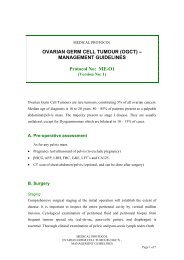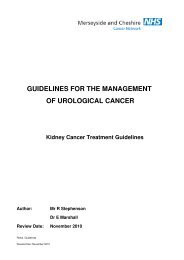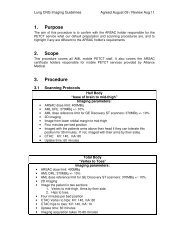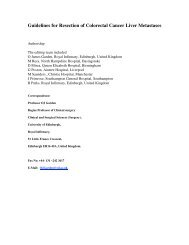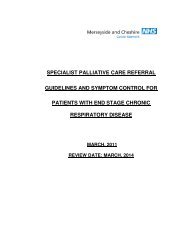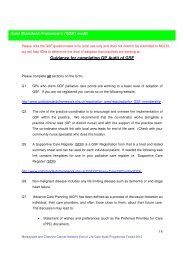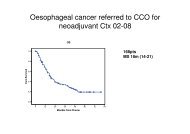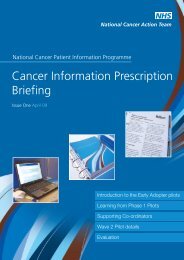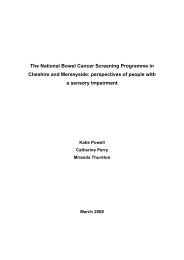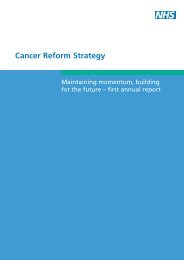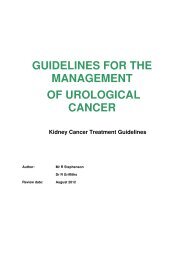Cancer Reform Strategy - NHS Cancer Screening Programmes
Cancer Reform Strategy - NHS Cancer Screening Programmes
Cancer Reform Strategy - NHS Cancer Screening Programmes
- No tags were found...
Create successful ePaper yourself
Turn your PDF publications into a flip-book with our unique Google optimized e-Paper software.
CHAPTER 8: USING INFORMATION TO IMPROVE QUALITY AND CHOICE 109Box 42: Early products expected from the National <strong>Cancer</strong> Intelligence Network●●●●●●An electronic toolkit, bringing together information on cancer in an accessible and usableway to enable the benchmarking of services and to inform commissioning;Collecting and analysing information on cancers in teenage and young adults;Evaluating services for secondary cancers in specific tumour areas;Making available to the public information on clinical outcomes through <strong>NHS</strong> Choices;Following up the progress of patients who have been involved in clinical trials over longerperiods; andAssessment of trends in one year survival rates for different cancers. These are a proxy forearly/late diagnosis.8.24 As mentioned in chapter 5, we will ensurethat patients will be able to access informationon the experience reported by other people withsimilar conditions, as well as clinical outcomesdata through <strong>NHS</strong> Choices (www.nhs.uk).Written information will be available for thosewithout internet access.8.25 As part of the process of incentivisingservice improvements, good commissioners willtake data into account when making decisionsabout service provision and agreeing prioritiesfor improvement with providers.Box 43: How commissioners could use information on clinical outcomes to improvecancer servicesIf clinical outcomes data reveals that a bowel cancer provider’s outcomes are lagging behindthose of comparable services, then patients may choose to be treated elsewhere. Equally acommissioner could work with the provider to agree actions to improve performance. This mightinclude better MDT working, recruiting additional staff or introducing new technologies.Box 44: How commissioners could use information on patient experience to improvecancer servicesIf a patient experience survey reveals that the experience reported by men with prostate canceris considerably worse than that of patients with other cancers in a particular area, then acommissioner could work with the service provider to address this disparity. Actions mightinclude recruiting an additional clinical nurse specialist, closer working with a patient supportgroup or introducing new decision aids to assist men when making a choice about treatment.Box 45: How commissioners could use information to reduce inequalitiesIf data on awareness of and attitudes to cancer signs and symptoms reveals a deficit in aparticular community, then commissioners can use this information to address the problems.Actions might include developing culturally-sensitive awareness and information programmesand evaluating their effect.



